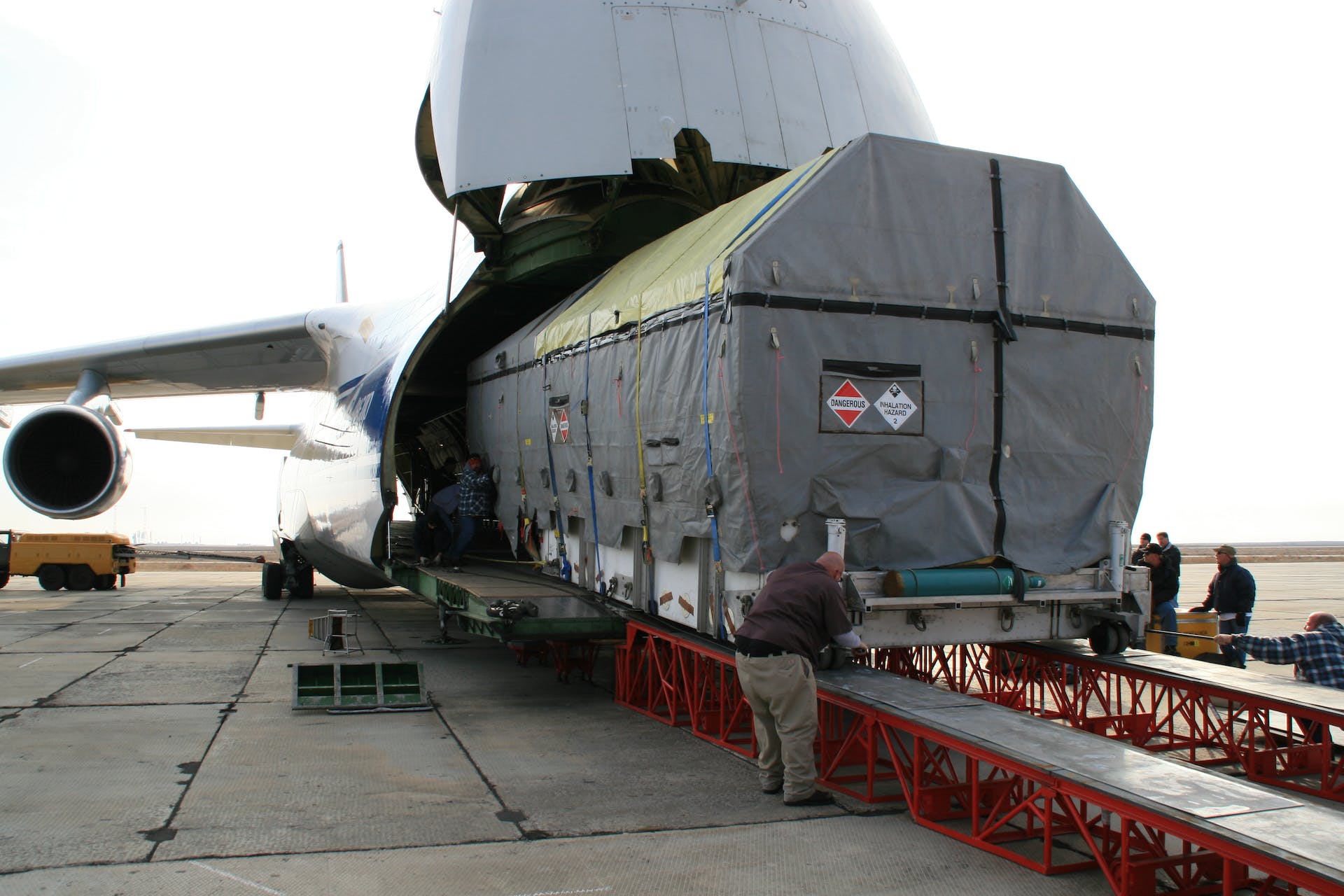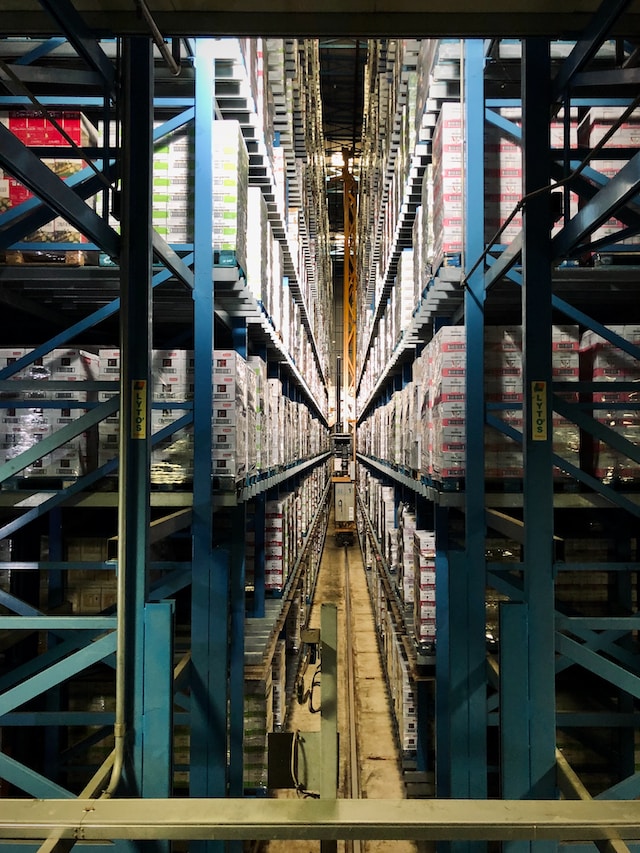
In all my careers, I have worked in some form on trade of goods and services. Passenger air service is essential. Politicians and Tweets (or, is the noun or verb now Xs?) of passengers complaining about something in an airport or airline usually get staff hopping—at least those that like to supply excellent service. But I notice that no country, region, or sector can survive without trade and the tools for trade. In the dynamic tapestry of global commerce, air cargo emerges as one of the pivotal tools propelling economies, cities, and countries to unparalleled heights of success. Beyond the clouds and runways, the cargo holds of passenger planes (and all-freighters) carry not just goods but the very lifeblood of economic vitality. I want to take you on a journey to unravel the multifaceted value of air cargo and understand why it stands as a cornerstone of prosperity. Read to the end to receive a complimentary offer.
1. Accelerating Global Trade:
Air cargo is the linchpin connecting markets worldwide, facilitating swift and efficient trade. The speed of air transportation allows for the timely movement of goods, reducing lead times and enabling businesses to respond promptly to market demands. In an era where the pace of commerce is measured in hours, air cargo emerges as the catalyst for global trade acceleration.
Companies and country governments who appreciate the connection to on-the-ground commerce are moving to improve efficiency and move cargo faster and smoother with fewer bottlenecks.
Alibaba’s Cainiao CEO Wan Lin said to Time: “Because the biggest barrier to globalization is logistics.” The goal of Cainiao is to deliver a parcel anywhere in the world within 72 hours for $3.
For countries in the global south, faster, less expensive logistics presents a significant economic growth and development opportunity. The reduced cost and faster delivery times make international trade more accessible for businesses in regions as diverse as Peru, Chad, and Bangalore. Imagine small-scale producers, like coffee growers in Peru and textile weavers in Chad, dependent on their cotton industry, can now engage in global markets with lower logistics barriers. The affordability and speed of shipping can empower these economies to participate more actively in international trade, expanding their reach and contributing to poverty alleviation.
Another example is where medical instrument producers in Bangalore could benefit. Faster and more affordable shipping can lead to quicker access to essential medical equipment globally. This supports the economy and enhances healthcare capabilities, particularly in regions where access to advanced medical technology is crucial.
Supply chains are only as good as their weakest link, and sustainable improvements require complex changes in a range of policy dimensions in areas including infrastructure, trade facilitation, and logistics services.
Source: World Bank LPI 2023
On the other hand, for countries in the global north, this shift in trade dynamics might lead to increased competition. As shipping becomes more cost-effective and efficient, businesses from the global south can compete more aggressively in the global market. This can drive innovation and efficiency in businesses from the global north to remain competitive.
The acceleration of trade benefits countries in the south by providing them with unprecedented access to international markets. Simultaneously, it challenges businesses in the north to adapt to increased competition and foster innovation to maintain their competitiveness. The transformation in the international trade landscape can potentially create a more interconnected and dynamic global economy. My former clients, like Susies Hot Sauce from Antigua and Barbuda, would have been a worldwide product if we had this efficiency level 25 years ago.
2. Enhancing Supply Chain Efficiency:
Efficiency is the heartbeat of modern supply chains, and air cargo injects vitality into this circulatory system. The ability to transport goods swiftly minimizes inventory holding costs and optimizes supply chain responsiveness. Industries ranging from perishables to high-tech electronics benefit from air cargo’s agility in maintaining a lean and responsive supply chain. This efficiency also has an impact on real estate. For many producers and ground handlers, labor and rent are their two most significant line items. More efficiency means less need for larger space to store cargo.
Air cargo emerges as a game-changer in the realm of perishables, such as fresh produce and flowers. The ability to transport these time-sensitive goods quickly from farm to market ensures their freshness and quality upon arrival. For example, flowers cultivated in the highlands of Kenya can reach European markets within a day, preserving their bloom and extending their shelf life. This meets consumer expectations for fresh products and mitigates the risk of spoilage, reducing waste in the supply chain and saving money.
“Logistics are the lifeblood of international trade, and trade in turn is a powerful force for economic growth and poverty reduction,” said Mona Haddad, Global Director for Trade, Investment, and Competitiveness at the World Bank.
Source: World Bank, Press Release
The high-tech electronics industry is another beneficiary of air cargo’s agility. Rapid technological advancements require quick and efficient distribution of electronic components and devices. Air cargo facilitates just-in-time delivery, allowing manufacturers to keep minimal inventory on hand while responding swiftly to shifts in demand. For instance, a smartphone manufacturer in Asia can seamlessly transport newly released models to markets worldwide, ensuring timely availability for eager consumers and preventing disruptions in the highly competitive electronics sector.
Moreover, with their stringent temperature and time-sensitive requirements, pharmaceuticals rely on air cargo for expedited transportation. Vaccines, medications, and medical supplies can reach their destinations swiftly, addressing urgent healthcare needs and minimizing the risk of spoilage. As we saw during the peak of the Coronavirus pandemic, this capability is especially critical during global health crises, where timely access to medical resources can significantly impact public health outcomes.
Air cargo’s role in maintaining a lean and responsive supply chain transcends industries, offering a lifeline to businesses dealing with perishable goods, high-tech electronics, and critical medical supplies. Its contribution to global trade efficiency underscores its indispensability in the contemporary supply chain management landscape.

Air cargo is the lifeblood of an economy
The value of JIT can mean saving lives.
Click the link above to read just such a story.
3. Enabling Just-in-Time Manufacturing:
Air cargo plays a pivotal role in the success of just-in-time (JIT) manufacturing processes. Air cargo empowers manufacturers to streamline production, reduce storage costs, and enhance overall operational efficiency by ensuring timely delivery of components and raw materials. This seamless integration translates into increased competitiveness for industries relying on JIT principles.
Air cargo stands as a heartbeat in the triumph of just-in-time (JIT) manufacturing processes, where precision and punctuality are paramount. This mode of transportation, with its ability to guarantee the prompt delivery of components and raw materials, bestows manufacturers with the power to streamline their production cycles. The significance of this lies in the reduction of storage costs, as JIT manufacturing operates on the principle of receiving materials exactly when needed, minimizing the need for extensive warehousing.
The seamless integration of air cargo into JIT manufacturing processes not only contributes to operational efficiency but also becomes a driving force behind increased competitiveness. Industries that heavily rely on JIT principles, such as automotive manufacturing, electronics, and fashion, benefit immensely from the precision and speed that air cargo offers. For example, an automotive assembly line, like those in the Southern USA (BMW, Hyundai, etc.), can receive crucial components from suppliers worldwide precisely when they are required for assembly, avoiding delays and optimizing the entire production chain.
Furthermore, the reliance on air cargo for JIT manufacturing enhances flexibility in responding to fluctuations in demand. Manufacturers can adjust their production schedules more dynamically, avoiding excess inventory during periods of lower demand and ramping up efficiently during peak periods. This adaptability is particularly advantageous in industries where consumer preferences and market trends change rapidly.
In essence, air cargo emerges as a pivotal enabler of JIT manufacturing, fostering a harmonious synergy between timely transportation and streamlined production. Its role extends beyond mere logistics, becoming a strategic asset that propels industries forward in the competitive landscape by enhancing efficiency and responsiveness.
4. Facilitating E-commerce Boom:
In the digital age, where online marketplaces transcend borders, air cargo fuels the exponential growth of e-commerce. From the swift delivery of consumer goods to the seamless movement of cross-border shipments, air cargo is the invisible force ensuring that the global marketplace is just a click away for consumers and businesses alike.

In the digital era, air cargo emerges as the unseen force propelling the exponential growth of e-commerce. As online marketplaces transcend borders, the swift and efficient delivery facilitated by air cargo becomes paramount for the seamless functioning of global trade. From ensuring the rapid transportation of consumer goods to facilitating the smooth movement of cross-border shipments, air cargo plays a pivotal role in bridging the physical gaps in the interconnected world of e-commerce. Its reliability and speed make the global marketplace accessible with just a click, offering consumers and businesses alike the convenience and efficiency necessary for thriving in the fast-paced landscape of online commerce.
The role of air cargo in supporting e-commerce extends beyond mere logistics; it serves as a catalyst for the dynamic expansion of digital marketplaces. The ability to transport goods swiftly and reliably enhances the overall customer experience, fostering trust and satisfaction. Additionally, air cargo’s contribution to the seamless movement of cross-border shipments facilitates the global exchange of products, opening new avenues for businesses to reach international markets. Air cargo’s invisible influence on the e-commerce landscape underscores its indispensability in the modern, interconnected world of online trade.
5. Supporting High-Value and Time-Sensitive Goods:
Certain commodities demand a transportation mode that aligns with their value and sensitivity to time. Air cargo is preferred for transporting high-value and time-sensitive goods, including pharmaceuticals, electronics, high-value cargo (like currency, precious stones and metals, jewelry, arms, and ammunition), and perishables. The controlled environment and rapid transit times make air cargo indispensable for industries where precision and speed are paramount. See my article about how an airport got robbed of 400 kilos of gold. I will put the link at the end.
In the business of transporting commodities that are not only high in value but also time-sensitive, air cargo emerges as the unequivocal choice. Specifically tailored to cater to goods such as pharmaceuticals, electronics, and perishables, this mode of transportation offers unparalleled benefits. The controlled environment provided by air cargo ensures that delicate and sensitive items, like pharmaceuticals, maintain their integrity throughout the journey. Moreover, the rapid transit times inherent to air cargo become critical for industries where precision and speed are non-negotiable.
Industries relying on transporting high-value and time-sensitive goods find air cargo indispensable in meeting their unique demands. Take the pharmaceutical sector, for instance, where the need for swift and secure transportation of medications, vaccines, and other critical supplies is imperative. In the electronics industry, where the shelf life of technological components is fleeting, air cargo ensures that these items reach their destination swiftly, reducing the risk of obsolescence. Similarly, in the realm of perishables, such as fresh produce or flowers, air cargo’s controlled conditions, and expedited transit times become lifelines in preserving their quality. On the ground, the ground handler must also have the proper facilities. I once witnessed a ground handler allow spoilage of millions of dollars of insulin because his zero-degree temperature refrigeration broke. Needless to say, that put him out of business.
Air cargo’s role as the preferred choice for high-value and time-sensitive goods is not merely a matter of convenience but a strategic necessity for industries where the clock ticks loudly, and precision is the essence of success.
6. Boosting Tourism and Hospitality:
Beyond the realm of commerce, air cargo contributes to the vibrancy of the tourism and hospitality sectors. By facilitating the rapid transport of goods crucial for these industries—ranging from fresh produce to luxury goods—air cargo plays a crucial role in creating a seamless and enjoyable experience for travelers around the globe.
Air cargo extends its influence beyond the boundaries of commerce, becoming an integral force in shaping the vibrancy of the tourism and hospitality sectors. This contribution is notably significant as air cargo is the foundation for the rapid and efficient transport of essential goods vital to these industries. From the swift delivery of fresh produce to ensuring the timely arrival of luxury goods, air cargo orchestrates a symphony of logistical support that enhances the overall travel experience for individuals worldwide.
In the tourism sector, the timely delivery of fresh produce or equipment to hotels, restaurants, and entertainment venues is critical for maintaining the high standards of service expected by discerning travelers. Air cargo ensures that these establishments have access to a diverse array of fresh and high-quality ingredients, creating delightful culinary experiences. Additionally, in the hospitality sector, transporting high-end goods—from designer apparel to exclusive products—via air cargo plays a pivotal role in enhancing the overall luxurious experience for tourists, fostering a sense of exclusivity and sophistication.
In essence, air cargo’s influence reaches far beyond the logistical intricacies of supply chains; it becomes a silent yet powerful enabler of the seamless and enjoyable experiences that define the tourism and hospitality sectors.

7. Driving Employment and Economic Growth:
The air cargo industry is a substantial contributor to employment and economic growth. From pilots and ground crew to logistics professionals and support staff, the ecosystem around air cargo creates many job opportunities. Moreover, the economic activities generated by air cargo operations ripple through local and national economies, what economists call the indirect and induced impact fostering growth and prosperity.
The air cargo industry is a formidable contributor to employment and economic growth, generating a vast array of job opportunities across various sectors. The workforce supporting air cargo operations extends beyond the cockpit, encompassing roles such as ground crew members, logistics professionals, and indispensable support staff. This multifaceted ecosystem provides fulfilling career paths for individuals and ensures the smooth functioning of a complex and interconnected network.
The economic impact of the air cargo industry extends well beyond the confines of the airport, creating a ripple effect that reverberates through local and national economies. The activities associated with air cargo operations serve as catalysts for economic growth, fostering prosperity in the regions where they are embedded. From the influx of businesses involved in logistics and transportation to the increased demand for services in related industries, the economic footprint of air cargo is dynamic and far-reaching. Ultimately, the industry’s role in job creation and economic development underscores its significance as a driver of progress and vitality on both local and national scales.
In conclusion, air cargo transcends its role as a mode of transportation; it is the life force of a globally interconnected economy. From the acceleration of trade to the facilitation of just-in-time manufacturing and the exponential growth of e-commerce, air cargo shapes the contours of modern prosperity. As we gaze upwards and see aircraft contrails (condensation trails), let us recognize the invaluable role that air cargo plays in sustaining the soaring success of cities, countries, and economies.
To learn more, check the websites below:
- International Air Transport Association (IATA)
- Air Cargo World
- World Bank Group – Logistics Performance Index
- International Civil Aviation Organization (ICAO)
- DHL Global Connectedness Index
Elevate Your Aviation Knowledge
Click below for our complimentary guide to Airport Operations:

Dive into the Airport 101 Series

Security is one reason shippers use air cargo
Click the link to read about how 400kg of gold disappeared from an airport.

Your words have a way of resonating deeply with your readers Thank you for always being encouraging and uplifting
Stumbling upon this website was such a delightful find. The layout is clean and inviting, making it a pleasure to explore the terrific content. I’m incredibly impressed by the level of effort and passion that clearly goes into maintaining such a valuable online space.
Your article helped me a lot, is there any more related content? Thanks!